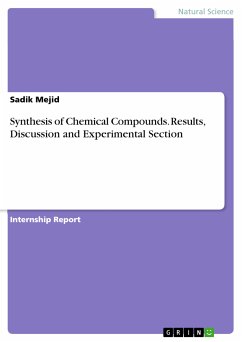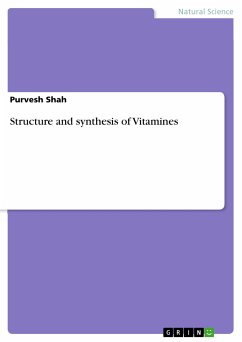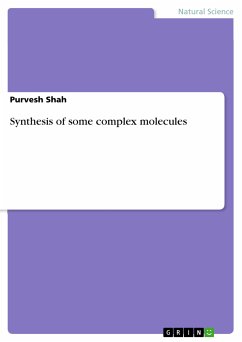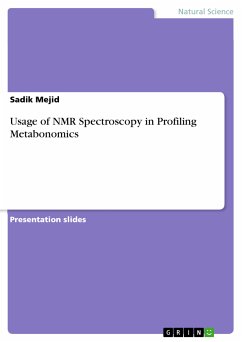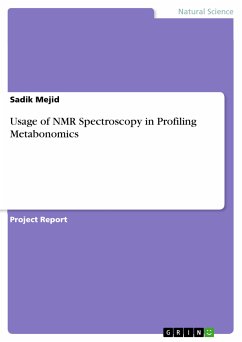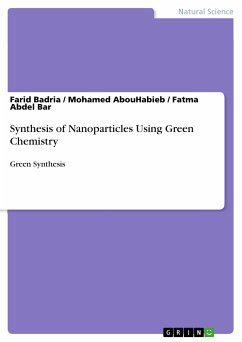Internship Report from the year 2015 in the subject Chemistry - Organic Chemistry, grade: 1,3, University of Cologne (Institut für Organische Chemie), language: English, abstract: A literature survey via Reaxys revealed 2 references in which this compound was described as the product. The first synthesis has been published by Corey in the Journal of Organic Chemistry in 1988: N-(benzyloxycarbonyl)-(S)-proline (3) was synthesized in 75.2% yield from proline by reaction with benzyl chloroformate in an aqueous solution at 0-5°C. E. J. Corey, J. Org. Chem., Vol. 53, No. 12, 1988, 2861-2863 seemed to be the best choice for its high yield. The protection of proline with benzylchloroformate gave a colourless solid, which recrystallized from petrolium ether. The yield of 75.2% is below that reportedin the literature (96%). The purity of the product could not be proofed, since no enough analytic data are available. For the product (3) no GC-MS was recorded, because of its carbon acid group that might damage the mass spectrometry system. The hydroxide ion of NaOH deprotonates the NH-group of proline to form water and the electron pair of the nitrogen anion undergo a nucleophilic attack to the carbon atom of the carbonyl-group to give (3). The sodium cation forms with chloride anion sodiumchloride that prcipitates. An example for the application of the cyclic amino acid is its use as a pharmaceutical intermidiate, which is used for the synthesis of Eletriptan, a drug for the treatment of migriane.
Dieser Download kann aus rechtlichen Gründen nur mit Rechnungsadresse in A, B, BG, CY, CZ, D, DK, EW, E, FIN, F, GR, HR, H, IRL, I, LT, L, LR, M, NL, PL, P, R, S, SLO, SK ausgeliefert werden.

